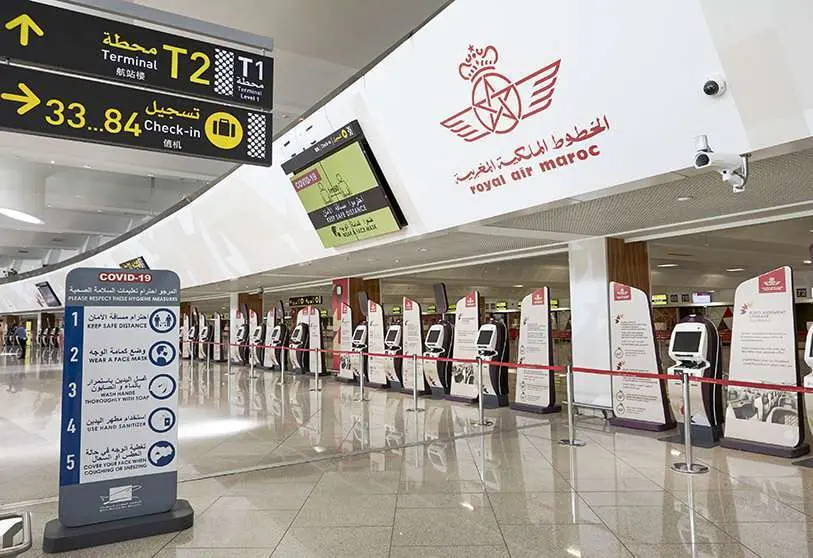Alarma en el aeropuerto Hassan I de El Aaiún ante la entrada de la variante ómicron en España

Following the announcement of the suspension of all international flights on Sunday 28 March and the subsequent entry into force of the measure on Tuesday at 00:00 hours, the Kingdom of Morocco has focused its efforts on strengthening preventive health mechanisms to deal with the new Omicron variant of COVID-19. The Alawi country, which has managed to maintain its lowest levels of infection since the start of the pandemic for several weeks, will maintain the flight ban for a period of 15 days, but will regularly assess the situation to make "adjustments, if necessary", the Interministerial COVID Follow-up Committee said in a statement.
"Due to the rapid spread of the new variant of the COVID-19 virus, Omicron (B.1.1.529), especially in Europe and Africa, and in order to preserve the achievements made by Morocco in the fight against the pandemic and to protect the health of citizens, it has been decided to suspend all direct passenger flights to the Kingdom of Morocco, for a period of 2 weeks, starting on Monday 29 November 2021 at 11h59," the statement said.

Thus, the arrival - last Monday - of the last international flight planned for the next two weeks, has meant for the country an "unprecedented" deployment of security devices and strict surveillance mechanisms at Laayoun Hassan I International Airport in Laayoune, the largest city in Western Sahara, which is under Moroccan control. Travellers on the flight, which came from the island of Las Palmas in the Canary Islands, had to undergo very precise laboratory tests for COVID-19. According to the statements made by an official source to rue20.com, 'more than 130 Moroccan passengers' on the flight were tested, and all of them 'were found to be negative'.
The authorities and law enforcement agencies have stated that these precautions do not only apply to international flights, but that, from now on, departures and arrivals of travellers on flights within Moroccan territory will continue to be monitored. The country will continue to work on strengthening the relevant sanitary controls to prevent the entry of the Omicron variant, which is thought to be several times more transmissible than other strains, and for which there is not yet much information. As the World Health Organisation (WHO) warned a few days ago, knowledge about the mutations of this variant will still need "several weeks".

Since the detection of the new strain by a group of South African scientists about 10 days ago, several countries around the world have taken restrictive precautionary measures. At least until the real implications of this new variant are known. The 'omicron' strain, as it has been dubbed by the WHO, has 32 mutations from previous variants, some of which are suspected to greatly increase the risk of re-infection.
The Kingdom of Morocco took action from the outset, initially restricting entry to travellers from South Africa and some southern African countries - such as Botswana, Namibia, Lesotho, Swaziland, Mozambique and Zimbabwe - and later suspending flights to and from France, where infections increased dramatically. Now, in order to maintain its low incidence figures and to prevent a new wave on its territory, the Alawi country is shielding itself by restricting international air connections.








